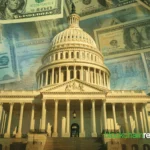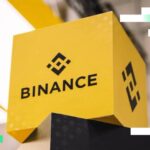Chainlink, a prominent blockchain oracle provider, has entered into a partnership with UBS, a leading asset manager with a total of $5.9 trillion in assets, alongside DigiFT, to initiate a pilot study aimed at automating the tokenization of real-world assets (RWAs). This collaboration could significantly reduce manual errors that often occur in the current processes surrounding asset management.
The pilot study is being conducted as part of Hong Kong’s Cyberport Blockchain & Digital Asset Pilot Subsidy Scheme, a regulatory sandbox designed to facilitate and test innovative cryptocurrency ideas for potential future implementation in the region. The announcement highlights that the three organizations are working together to establish a regulated blockchain-based infrastructure intended to automate and enhance the distribution, settlement, and lifecycle management of tokenized products.
In the proposed workflow of the project, investors will submit subscription or redemption requests for UBS’s tokenized offerings through smart contracts managed by DigiFT. These requests will then be processed by Chainlink’s Digital Transfer Agent contracts, which serve as the underlying infrastructure to verify and record these orders directly onto the blockchain. Following approval, these transactions will trigger associated events—such as issuance or redemption—on UBS’s tokenized product contracts, which adhere to the Capital Markets Technology Association (CMTA) Token standards. This framework, developed in Switzerland, seeks to harmonize the issuance of digital securities across various jurisdictions.
In addition to RWAs, Hong Kong’s Cyberport is also exploring other innovative crypto initiatives, including decentralized identity solutions, stablecoins, digital payments, and blockchain applications for social innovation and enhanced digital experiences. Notably, Hong Kong benefits from a clear regulatory framework for digital assets, contrasting with mainland China; however, it is still subject to broader regulations imposed by Chinese authorities. Reports suggest that new restrictions may target cryptocurrency operations conducted by Chinese firms within the autonomous administrative region.
DigiFT, an exchange specializing in tokenized assets, will play a critical role by providing insights into whether the technological implementations satisfy the compliance and interoperability criteria set forth by local financial institutions. This is particularly important given that manual reconciliation of funds can lead to significant tracking errors or misalignment between a fund’s value and the underlying assets.
The push toward automated RWA tokenization is further motivated by ongoing trends such as the integration of decentralized finance (DeFi) solutions and strategies for yield generation. By improving operational efficiency, automation has the potential to lower costs, thereby either increasing revenues for fund operators or potentially benefiting investors directly.
In recent months, RWA tokenization has experienced a notable surge, particularly marked in 2025 when traditional financial institutions began increasingly engaging with crypto and when cryptocurrency exchanges ventured into traditional finance domains. For instance, in a 30-day period ending on August 29, the value of tokenized institutional alternative funds rose by 47% to reach $1.74 billion.
As of now, the overall market capitalization of all real-world asset coins, which include various protocols and tokenized assets, stands at approximately $66 billion. This represents a 1.8% increase over the previous 24 hours, according to CoinGecko.
The intersection of traditional finance institutions and cryptocurrency exchanges, as evidenced by the participation of firms such as BlackRock and Franklin Templeton, which have launched funds backed by US Treasuries, reflects a growing trend of cross-pollination in the field of real-world asset tokenization. Meanwhile, exchanges like Kraken and Bybit are exploring the concept of tokenized stocks, broadening the potential scope of digital assets in the financial landscape.








